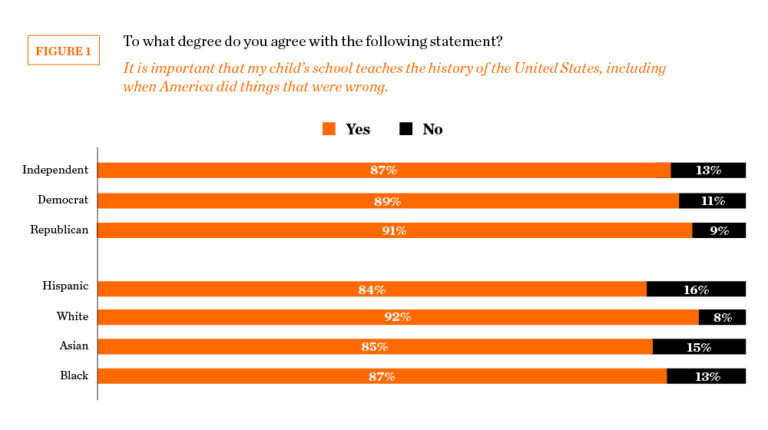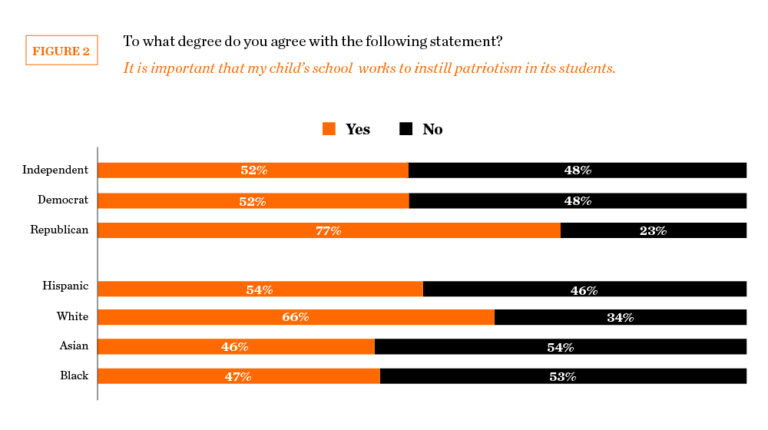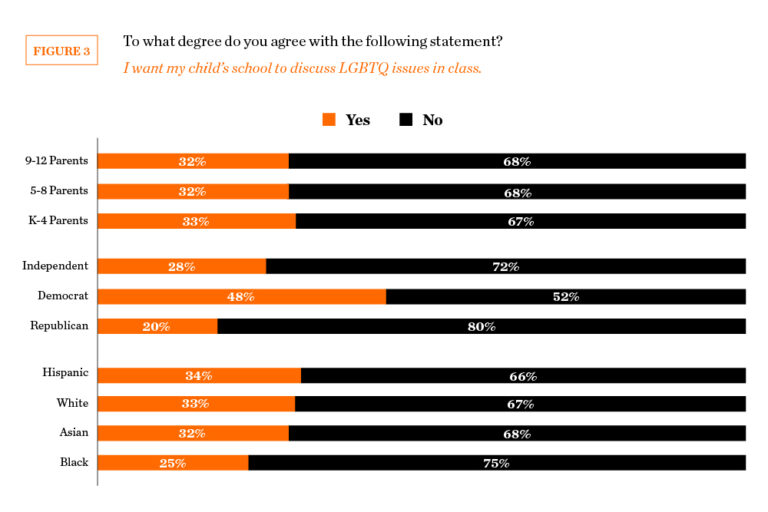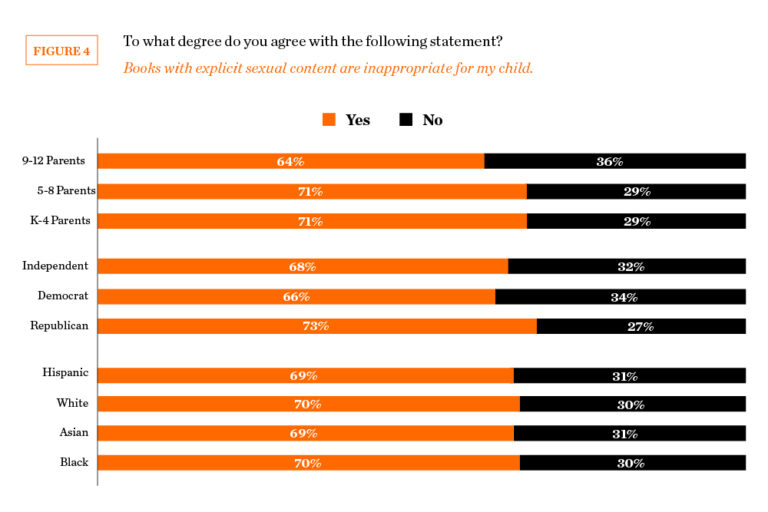Parents Aren’t As Polarized As Some Assume, New Polling Report Shows
Last month, we published the results from a nationally representative survey of American parents. In partnership with Morning Consult, we asked a set of questions ranging from how parents get information about their child’s school, to how they weigh the importance of different school performance data, to how open they would be to a new school model or a school that might take longer to travel to. We also asked their thoughts on school practices and emphases. The report offered gave the “top line” (or average) response to each of the questions.
A common response I got to the report was, “OK, those are the average results, but given how diverse and polarized our country is, I bet there are big differences between different groups of parents.”
A fair assumption.
Luckily, given the large sample size of the survey, we are able to break the findings down by demographic groups. This allows us to see if parental opinions vary by race or political orientation or if parents of older children have different opinions than those of younger children.
I’ll break down the results for four of the most hot button questions asked in the survey. Interestingly, while there was some variation, overall, parents were far more similar in their responses to questions than they were different. It seems like parents aren’t as polarized on these issues as headlines might suggest. Let’s dig into the numbers.
Teaching American History
We asked parents to what degree they agreed with the statement “It is important that my child’s school teaches the history of the United States, including when America did things that were wrong.” Parents could select “strongly agree,” “somewhat agree,” “somewhat disagree,” “or strongly disagree.”
 If we combine the answers for “strongly” and “somewhat” agree, every political subgroup and every racial or ethnic subgroup saw more than 8 in 10 respondents say that they agreed with the statement. White respondents and Republicans were both over 90%, but there was only a four point spread between the various political subgroups and an eight point spread between racial and ethnic groups. Not a lot of disagreement there.
If we combine the answers for “strongly” and “somewhat” agree, every political subgroup and every racial or ethnic subgroup saw more than 8 in 10 respondents say that they agreed with the statement. White respondents and Republicans were both over 90%, but there was only a four point spread between the various political subgroups and an eight point spread between racial and ethnic groups. Not a lot of disagreement there.
Instilling Patriotism
We asked parents to what degree they agreed with the statement “It is important that my child’s school works to instill patriotism in its students.” Parents could select “strongly agree,” “somewhat agree,” “somewhat disagree,” “or strongly disagree.” In general, parents were pretty evenly split on this question, with slim majorities agreeing.
 If we combine the answers for “strongly” and “somewhat” agree, we see an overall lower level of support than for the previous question, as well as a slightly larger spread between different demographic groups. Between political subgroups, there was a 25-point spread, with Republicans much more likely to agree than Independents or Democrats. Though, it should be noted, a majority of all three groups agreed with the statement.
If we combine the answers for “strongly” and “somewhat” agree, we see an overall lower level of support than for the previous question, as well as a slightly larger spread between different demographic groups. Between political subgroups, there was a 25-point spread, with Republicans much more likely to agree than Independents or Democrats. Though, it should be noted, a majority of all three groups agreed with the statement.
The spread between racial and ethic groups was smaller, at only 20 points, but there were two groups, Asian and Black respondents, who saw less than 50% of respondents agree with the statement.
LGBTQ Issues in the Classroom
We asked parents to what degree they agreed with the statement “I want my child’s school to discuss LGBTQ issues in class.” Parents could select “strongly agree,” “somewhat agree,” “somewhat disagree,” “or strongly disagree.”
Parents, in general, do not agree with this statement. In fact, none of the demographic groups passed 50% support.
 For this set of questions, I’m also sharing the results from student age bands, as some previous studies of this question have shown variation by student age (with more support for broaching these subjects with older children rather than younger ones). We did not see variation by student age.
For this set of questions, I’m also sharing the results from student age bands, as some previous studies of this question have shown variation by student age (with more support for broaching these subjects with older children rather than younger ones). We did not see variation by student age.
There was a small, nine-point, spread between racial and ethnic groups, with Black respondents least likely to agree with the statement.
The largest spread came from the political demographics, with a 28-point difference between Democrats (who were the most likely to agree with the statement) and Republicans (who were the least).
Sexually Explicit Books
We asked parents to what degree they agreed with the statement “Books with explicit sexual content are inappropriate for my child.” Parents could select “strongly agree,” “somewhat agree,” “somewhat disagree,” “or strongly disagree.”
Parents overwhelmingly agree with the statement.

Here we do see a small variation between age groups, with a seven-point difference between the parents of high school students and parents of middle- and elementary school students. Though, it should be noted that the numbers are quite high for all three groups.
We see little variation between political subgroups and even less variation between racial and ethnic groups. The spread between political groups was only five points, and for racial and ethnic groups it was only one point.
There are two important takeaways here.
The first is that there are some cases where different demographic groups are outliers in their opinions on the topics we surveyed. Democrats, for example, are much more likely to support schools covering LGBTQ issues in class and Republicans are much more likely to want schools to instill patriotism. That is worth recognizing and understanding.
At the same time, these individual cases stand out because of the unanimity between groups on most questions. The questions about teaching American history and explicit sexual materials see a huge amount of agreement, even across different demographic groups. Even in the questions about patriotism and LGBTQ issues, the non-outlier demographic groups are all pretty similar to each other.
There are polarizing issues in American education, but not every issue is polarizing, nor are all people polarized by issues that might stand out for one particular group. It is wise for policymakers, educators, parents, and observers alike to keep both of those facts in mind.




